Tommy Lawton: The England star who begged for money
- Published
Tommy Lawton never earned more than £15 a week playing football
Tommy Lawton scored 231 goals in a glittering football career which spanned World War Two. But by 1971 he had fallen on such hard times he was forced to beg the film director Richard Attenborough for a loan.
It is difficult to imagine modern footballers finding themselves in the same plight.
By the time you have read this sentence, Wayne Rooney will have earned about £4, depending on how fast you read.
The £70m, five-year deal he signed in 2014 sees the 30-year-old Manchester United striker rake in up to £300,000 a week while even an average Premier League player can expect to earn about £25,000 a week. It was not always this way, though.

Wayne Rooney became the highest paid footballer in the Premier League in 2014
Lawton was widely regarded as the greatest centre forward of his era. He rose to fame before World War Two and had a career spanning three decades, scoring 22 times in 23 England appearances.
He played for Notts County, Everton, Arsenal, Brentford and Chelsea, where Attenborough served on the board from 1969 to 1982.
But despite a glittering career, the most he earned was £15 a week - roughly £200 in today's money - and he fell on hard times after he retired in 1955.
Letters between Lawton and Attenborough (later Sir Richard and then Lord Attenborough), in which the the former footballer asked for a loan of £250 (approximately £3,700 in modern values), are being auctioned.
"This is a sad letter for me to write, Dickie, after so many years," one reads.
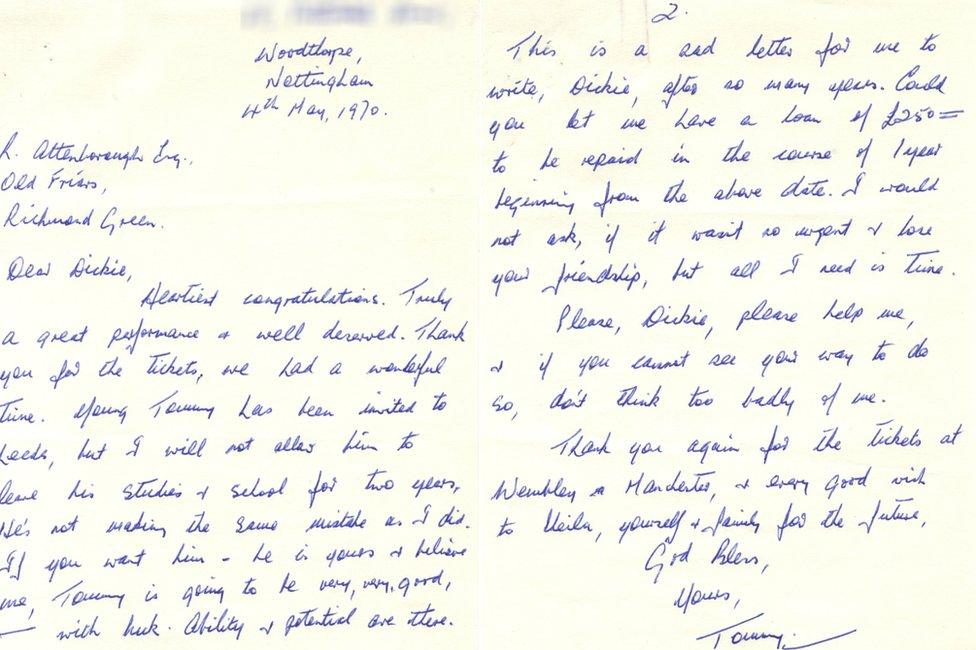
Letters between Lawton and Attenborough are expected to fetch up to £300 at auction
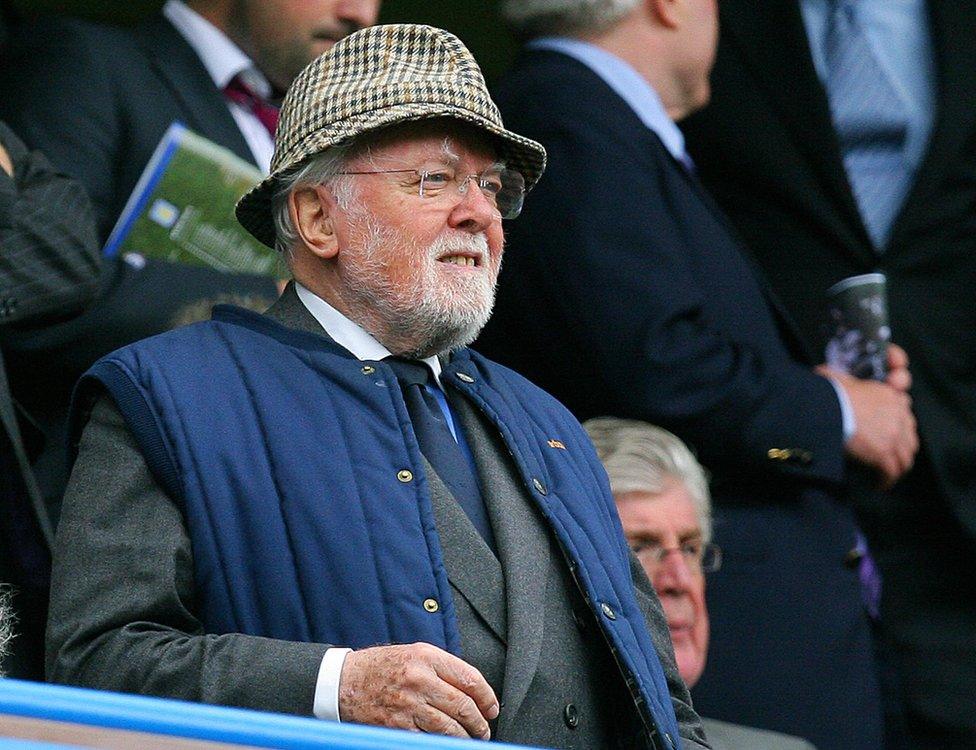
Lord Attenborough, who died in 2014, was a lifelong Chelsea supporter
"Could you let me have a loan of £250 to be repaid in the course of 1 year. I would not ask if it wasn't so urgent and lose your friendship, but all I need is time.
"Please, Dickie, please help me. If you cannot see your way to do so, don't think too badly of me."
Attenborough replied with a cheque for £100, explaining the rest of his money was tied up in a production company.
But his relationship with Attenborough turned sour when Lawton apparently failed to pay him £10 for two FA Cup tickets he provided in 1971.
The letters show Lawton later asked for help getting a job with singer Adam Faith, who had started a furnishing firm.

Lawton 'played at the wrong time'
Mark Shardlow, BBC Sport
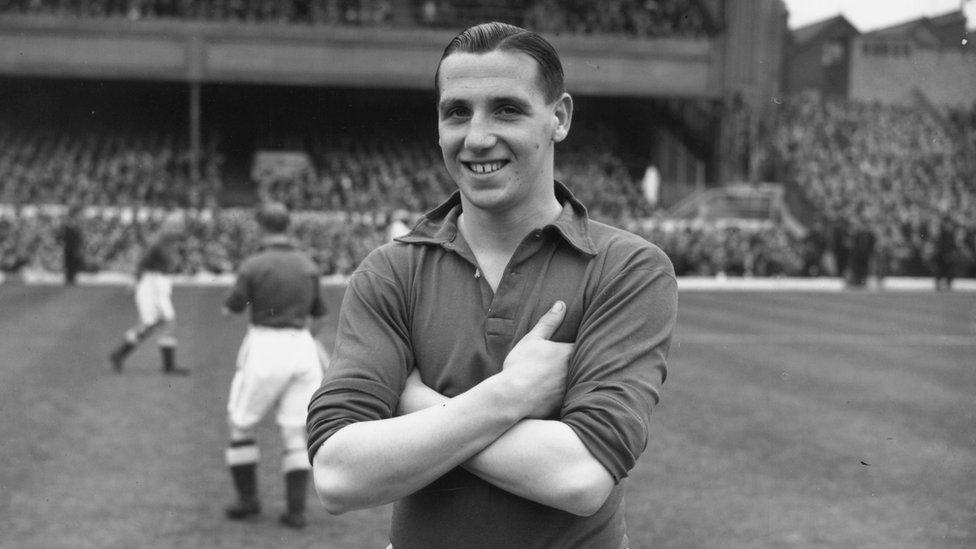
Tommy Lawton had to ask for money after his successful career ended
Tommy Lawton was the greatest centre forward of his era.
He was a star, scoring 231 goals in 390 league games and 22 goals in 23 games for England.
And he was an entertainer who fans wanted to see, amongst them Lord Attenborough.
But Lawton played his football at the wrong time. Clubs may have been wealthy but players weren't.
Top players these days can receive over £100,000 a week. Tommy was reckoned to be on around £15 a week at his peak.
The contrast with today's England stars could not be greater.


World Cup winner Jimmy Greaves' family is fundraising for his care
Lawton's story was far from unusual. Many of England's 1966 World Cup winning side were later forced to sell their medals in order to make ends meet.
Alan Ball, who set up the third goal against West Germany, sold his medal, external for £165,000 in 2005 "to look after his family".
And the most recent example is Jimmy Greaves - arguably the greatest striker England has ever produced - but whose family have been forced to fundraise, external in order to pay for his care since he suffered a massive stroke last year.
Fast-forward to this century and footballers' wages are in a different ballpark - the first six-figure weekly sum was handed to Sol Campbell when he left Tottenham Hotspur for north London rivals Arsenal in 2001.
But some still manage to lose it all. Lee Hendrie was on a more than comfortable £30,000 a week at Aston Villa but, by 2010, he was consumed with debt and even made two suicide attempts.
He blamed a divorce settlement and a series of "bad investments" in property for losing his fortune.

Hill's fight for fair wages
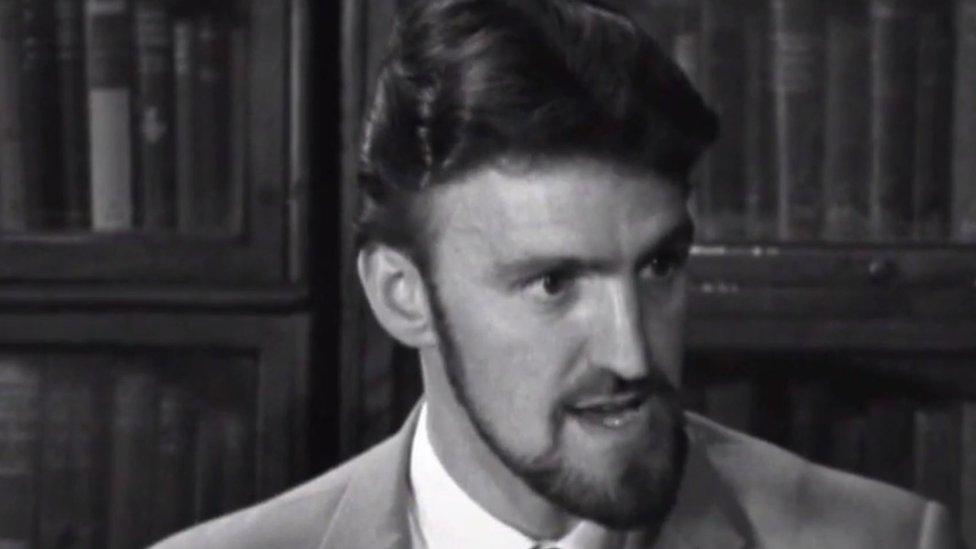
Jimmy Hill said a capped wage for professional players was not fair
Today's footballers have the late Jimmy Hill to thank for their gargantuan salaries. Back in 1960, professional footballers' salaries were capped at £20 a week.
Hill, who was chairman of players' union, the PFA, led the campaign to scrap maximum fees.
"Twenty pounds a week wasn't enough for what we were doing when you think how many people were watching," Hill, who died in December, said.
In 1961, days before a threatened strike, an agreement was reached and capped fees were abolished.
It was not long before Hill's old teammate, ex-England captain Johnny Haynes, became the first player to earn £100 a week.

The letters between Attenborough and Lawton, which go on sale at Nottingham-based International Autograph Auctions on Saturday, are expected to fetch £200 to £300.
Auctioneer Richard Davie said it is a "very poignant" correspondence.
"Lawton was a great Notts County footballer. I don't know how much he was earning a week but nothing on the level Premiership stars of today earn," he said.
"It's interesting evidence of how much football's changed in a generation or two."


- Published4 February 2015

- Published12 February 2016
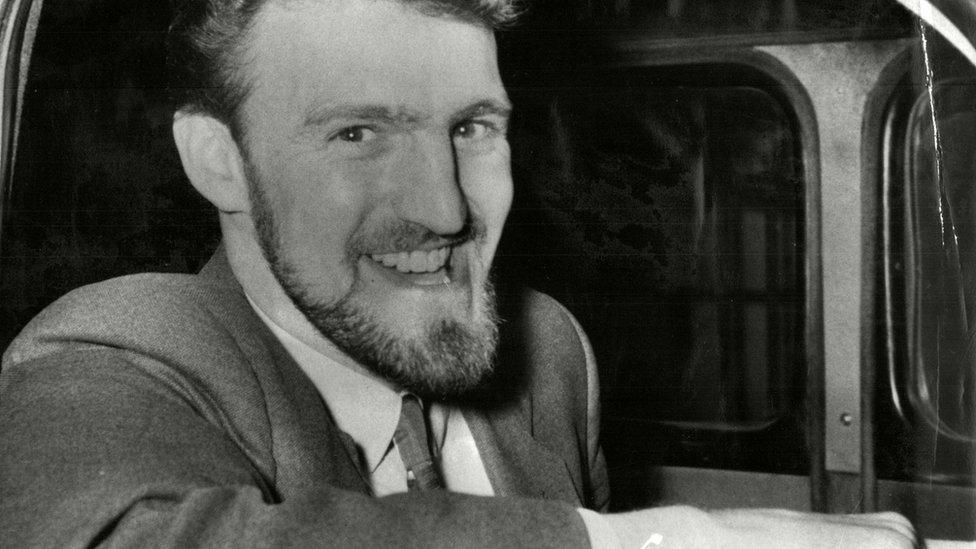
- Attribution
- Published16 March 2013
